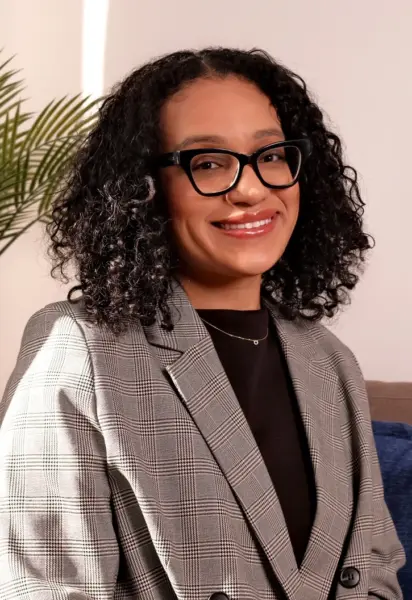Supportive Online
Emotion Focused Therapy (EFT)
|In New Jersey|
What is Emotion-Focused Therapy (EFT)
Emotion-Focused Therapy states that...
EFT operates on the premise that emotions play a pivotal role in shaping our identity and daily choices. Key assumptions of EFT include:
- Emotional awareness is vital for well-being.
- Evading emotions can result in adverse life consequences.
- Continual neglect of emotional responses can hinder future emotional processing.
- A therapist proficient in ECT aids clients in recognizing and comprehending their emotions, providing tools to navigate and manage them effectively.
- Emotional awareness is essential for mental health.
- Avoiding emotions furthers emotional pain.
- Persistent neglect of emotional responses can impair future emotional processing.
What to Expect in Emotion-Focused Therapy
In EFT sessions, both the therapist and client collaboratively work towards therapeutic goals. The therapist assists clients in deciphering their emotions rather than imposing interpretations.
The therapist's role in EFT
- Listening with empathy.
- Listen without judgement
- Using a reflective approach to pose questions and further deepen client’s insight
- Recognize and understand their emotions.
- Welcome all emotions without bias.
- Express emotions freely.
- Manage emotions to prevent overwhelm.
- Articulate feelings comprehensively.
- Grasp the underlying reasons for specific emotions.
Subsequent therapeutic steps encompass:
- Differentiating between helpful and unhelpful emotions.
- Leveraging emotions to guide actions.
- Pinpointing the sources of unhelpful emotions to then transform them.
- Developing effective coping strategies.
- Establishing balanced thinking and self-talk to counteract negative thoughts.
Core Skills for Positive EFT outcomes
- With increased self-awareness and acceptance, clients will arrive to their emotions with understanding and insight.
- Clients will be able to use their emotions as information to foster positive growth and change
Successful Emotion-Focused Therapy is marked by:
- Broadened emotional awareness.
- Improved emotional regulation and coping techniques.
- Flexible Thinking
EFT for Various mental health needs
Emotion-focused therapy for Anxiety
EFT empowers individuals to discern between beneficial and detrimental emotions, enhancing emotional self-regulation. Additionally, clients who are experiencing anxiety tend to having symptoms of rumination, worry and rigid thinking. EFT helps clients to break patterns of thinking through increased awareness of the thought, deep understanding of the associated emotions and intentional refocusing through coping, soothing and acceptance.
Emotion-focused therapy for Depression
Utilizing EFT for depression can help clients to face daily challenges proactively while mitigating depressive symptoms. Becaase EFT focuses on understanding emotions and their influence on behaviors, individuals with depression may find that EFT helps to break negative thinking cycles that lead to lower mood and fatigue.
Limitations of Emotion-Focused Therapy:
Often, EFT is used after a client has worked through more intense or pervasive challenges. Therapists at Mind by Design find that EFT tends to compliment therapy after CBT skills or DBT skills are mastered.
Some of the limitations include:
Limited in Scope: EFT might not be the comprehensive solution for specific issues like panic or impulse control, which span thoughts, feelings, and sensations beyond emotions. EFT is not typically used for PTSD or addiction due to limitations of reach within the bounds of EFT.
Commitment: EFT demands genuine commitment and openness from the client for optimal results.
Residual Symptoms: While EFT aims to enhance overall well-being, some mental health symptoms might linger. In such instances, a qualified provider should be actively assessing efficacy of treatment and ensuring your needs are met.
FAQs about online therapy
Where are you located? I need a therapist near me
We are fully online, which means that your therapy sessions will be help via video call on our HIPAA compliant Platform. Anyone in New Jersey can access our therapy services
How do I get started as a new client?
New Clients can reach out to us directly via call, text or email here:
Does my insurance cover my visits?
We provide”Courtesy Billing” for clients who are using the Out-of-network insurance benefits.
Our Insurance Page might answer your questions about your insurance information, cost and OON coverage.
What are out-of-network benefits?
Visits our FAQ About Insurance to learn more about OON coverage for mental health services. We can also check your benefits for you. When using OON benefits, patients typically pay the full cost of the treatment upfront and then file a claim with their insurance company for reimbursement.
Is Online Therapy As Effective As In-Person Therapy?
Online therapy is essentially face-to-face counseling, just conducted remotely. Studies show that tele-therapy is as effective as traditional counseling. Professional organizations and state governments recognize its benefits and have set regulations for it. However, like any therapy, its success in achieving your goals isn’t guaranteed. It’s important to discuss with your therapist whether tele-therapy is working for you.
How Should I Prepare for My First Session?
Showing up is all that you need to do! But if you really want to get the most out of session, it could help to take some time to think about what you want from therapy. It helps to write down your goals, questions you have or things that you feel are important to share.
Do you offer traditional talk therapy?
of course! though we have some unconventional therapy approaches, we are rooted in evidenced based practices. Talk therapy is a major player in the therapy room! See What we Treat and Integrative Services for more information
Is Virtual Counseling Suitable for Everyone?
Online therapy might not be as effective for individuals with chronic suicidal thoughts, severe trauma, significant mental health history, or those recently in intensive care. Such cases often benefit more from traditional, in-person counseling. We’ll help you decide if our online services are right for you during your intake and evaluation.
Can I Change Therapists If I'm Not Happy?
Yes, you can switch therapists to another provider within the practice, or we can provide you a referral if preferred. We want to ensure that your time and effort are well spent, and that you are getting the relief you need, that’s why we work collaboratively with each other in the practice, as well as outside therapists who we know and trust.
How Do I Know If Therapy Is Helping?
You should feel like you’re making progress. Signs it’s working include:
- Feeling comfortable talking to your therapist
- Your therapist respects boundaries
- You’re moving towards your goals
- You feel listened to
You’re doing better in life - Your self-esteem is getting better
What is your cancellation policy?
We ask that clients provide at least 24 hours notice in the event that they need to cancel to avoid the 50% cancellation fee. we understand that life happens and do our best to be flexible & reschedule.
What Geographic Areas Are Served?
Currently, we serve clients in New Jersey and are expanding to other states as telehealth laws evolve. While telehealth offers the convenience of attending sessions from anywhere, state laws require clients to be in-state during their session.
Is Online Therapy Easy to Use for Non-Tech-Savvy People?
Yes, it’s pretty simple to access sessions. You’ll need basic internet skills, such as opening and visiting the patient link sent to you via email. It’s similar to video chatting like Facetime or Zoom. We can also walk you through it on the phone the first time to ensure a strong connection
What Questions Should I Ask My New Therapist?
Feel free to ask anything. Some good questions are:
- How often will we meet?
- What do you specialize in?
- What experience do you have with my issue?
- What outcomes can I expect?
- How will I know I’m progressing?
- How long do you usually work with clients?
- How will we set my treatment goals?
What is the difference between associate therapists & fully licensed therapists?
Our Qualifications:
Our founder, Rebecca Sidoti, is a highly qualified, state-licensed therapist and supervisor with extensive training in anxiety related disorders and innovative treatment such as Ketamine Therapy. Mind by Design Counseling adheres to standards set by the our governing counseling boards.
To see each providers credentials, training and licenses, visit our “Meet the Therapists” Page to learn more.
- LAC/LSW are therapists who may practice clinical work under the supervision of a fully licensed therapist.
- LPC/LCSW are therapists who have completed the necessary clinical hours post-graduation under supervision and can practice clinical work independently.







